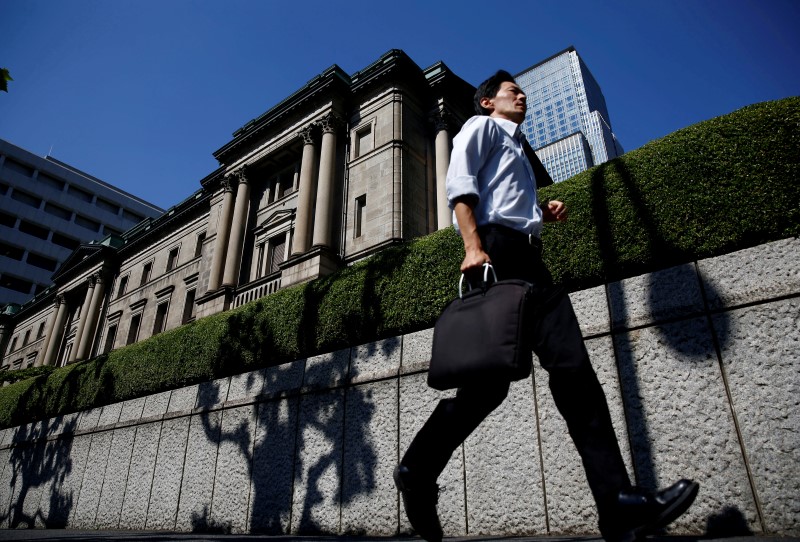By Stanley White and Izumi Nakagawa
TOKYO (Reuters) - The benefits of the Bank of Japan's negative interest rate policy are "very big" because it is encouraging corporate debt issuance and lowering mortgage rates, an adviser to Prime Minister Shinzo Abe said on Friday.
The policy has weighed on bank earnings in the short term, but it should be a benefit in the long term because negative rates can lead to more capital expenditure and boost consumer spending, Yasutoshi Nishimura told Reuters in an interview.
Nishimura's comments suggest the government would be open to a further decrease in negative rates as a way to get more money flowing through the economy and prevent a return to deflation.
"There are both positive and negative aspects, but I think the positive aspects are very big," said Nishimura, a ruling Liberal Democratic Party lawmaker and a former trade ministry official.
"I'm sure the BOJ will examine this policy and make the appropriate decision."
The BOJ will consider making negative interest rates the centrepiece of future monetary easing by shifting its prime policy target to interest rates from base money at its meeting next week, sources familiar with its thinking say.
The BOJ shocked investors in January by adding negative rates to its massive asset-buying programme launched in 2013 to encourage inflation.

The BOJ charges commercial banks 0.1 percent on a small portion of reserves they keep at the central bank.